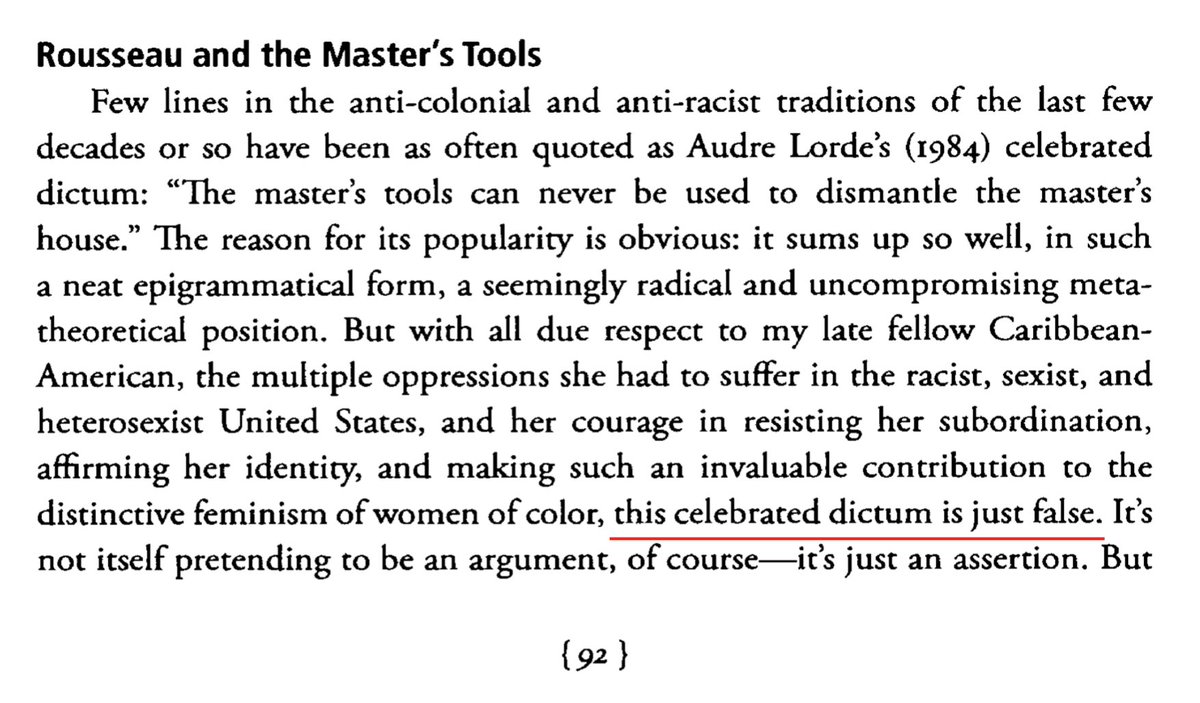
Alright, since "Jeremy" wants the smoke, it appears I'm going to have to roll out a thread about how his team's sophistical posturing on topics like intersectionality engenders just enough confidence in their fanbase to prevent them from fact-checking. 🧵 1/
https://twitter.com/JeremyPhilosoph/status/1362273562820816899
So we start here: "Intersectionality, at its core, is a *critique* on universal claims of other rights-based analytical frameworks and movements." - @SarahTheHaider
Because Crenshaw coined the term 'intersectionality,' and this does not at all describe her view, I objected. 2/
Because Crenshaw coined the term 'intersectionality,' and this does not at all describe her view, I objected. 2/

Sarah doesn't like the implication she hasn't read Crenshaw; she has! Great, I hope she can show me where on Earth Crenshaw critiques universal rights-based analytic frameworks.
Turns out I had made another mistake: interpreting 'intersectionality' as Crenshaw defined it. 3/

Turns out I had made another mistake: interpreting 'intersectionality' as Crenshaw defined it. 3/
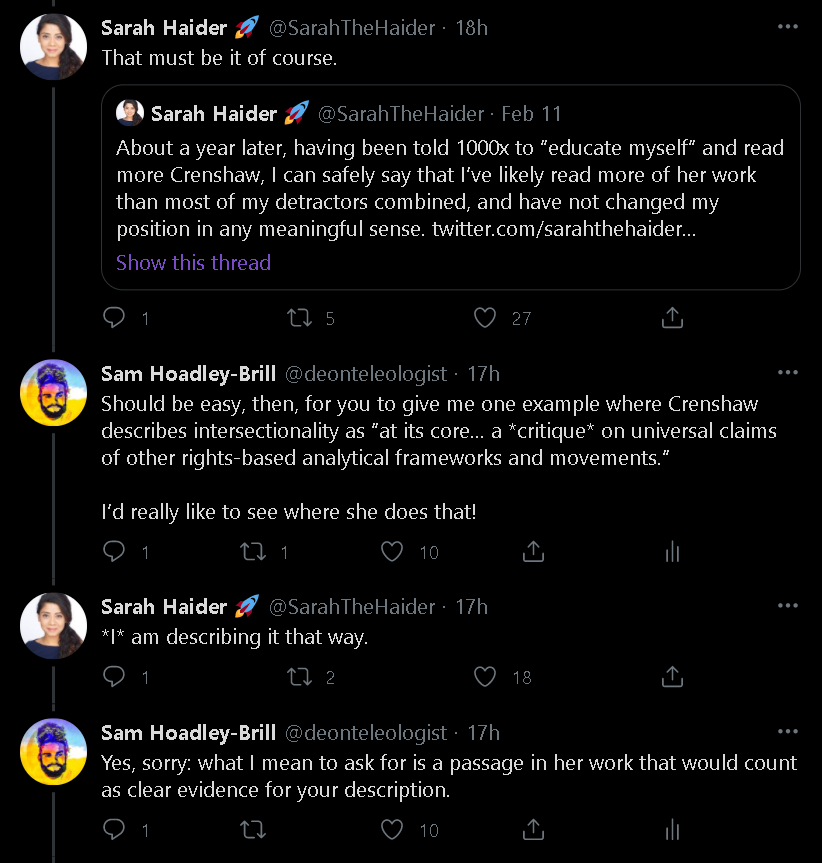
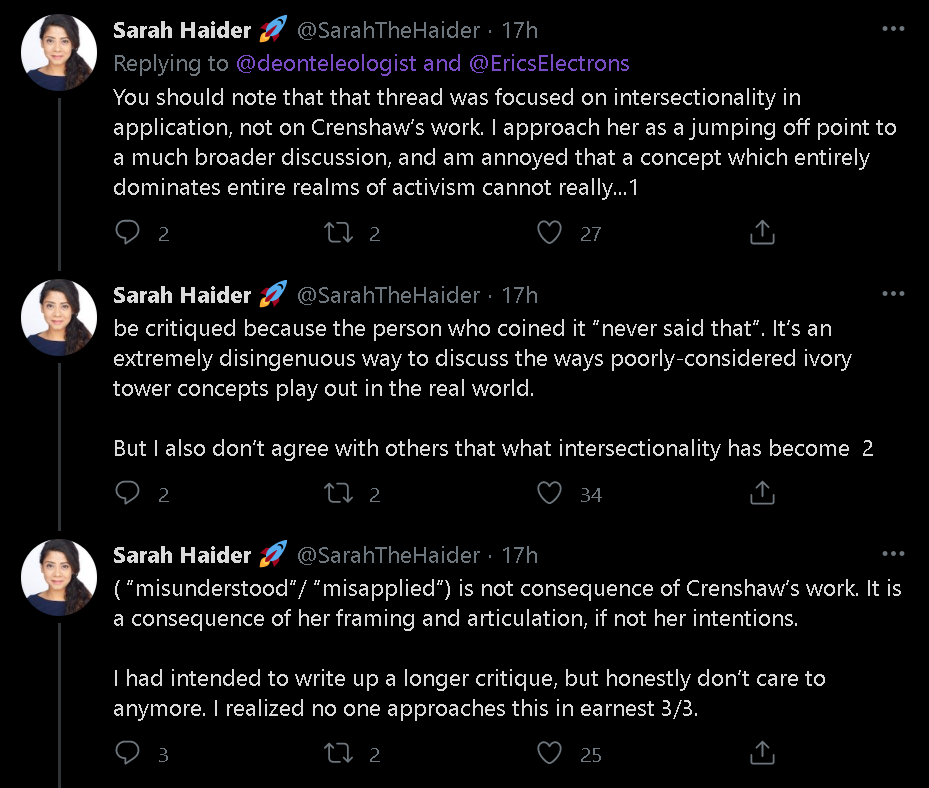
My fatal mistake: suggesting that Sarah clarify when she isn't using the term coined by the scholar she just informed me she read. Clearly I was just trying to win!
((Sarah still has provided zero evidence of anyone juxtaposing intersectionality & universal rights, btw.)) 4/

((Sarah still has provided zero evidence of anyone juxtaposing intersectionality & universal rights, btw.)) 4/
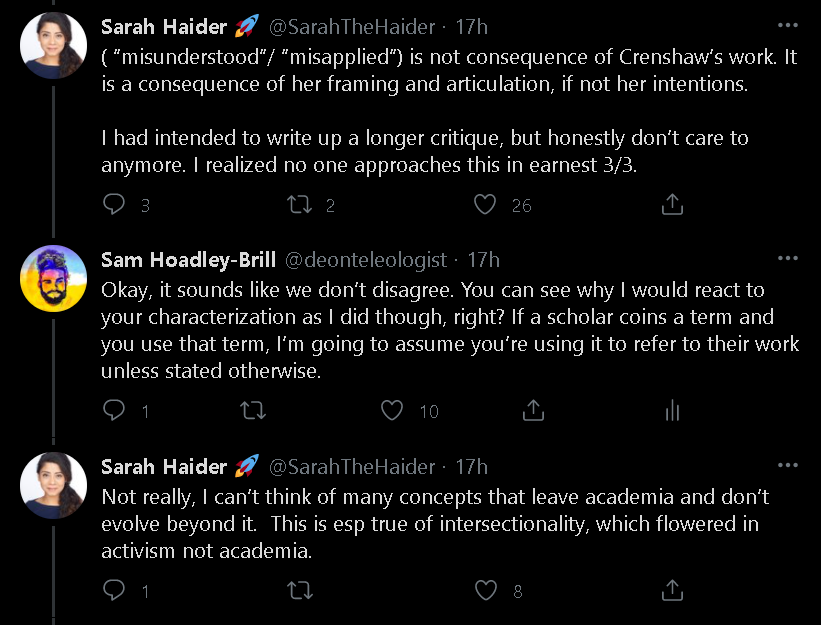
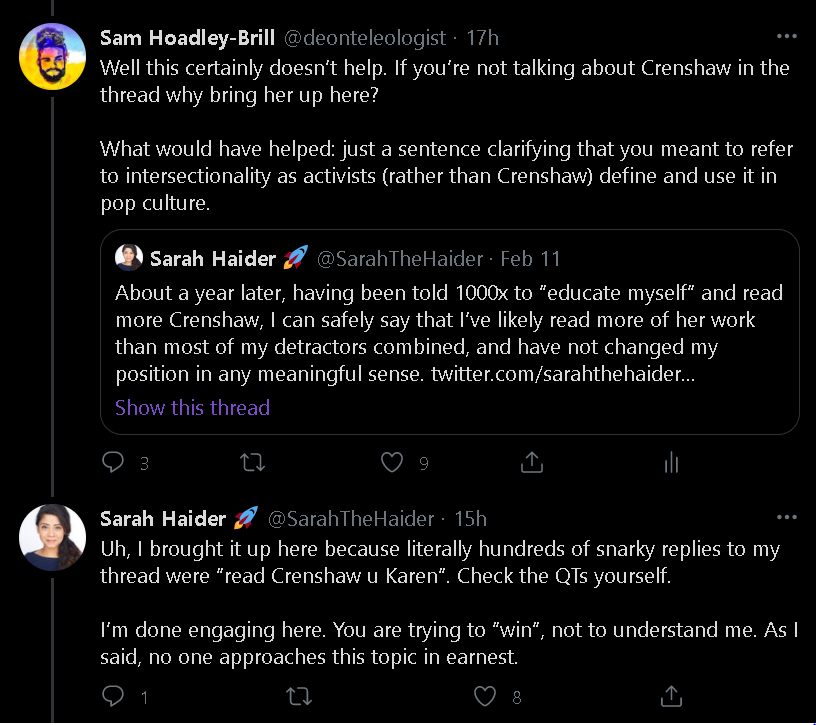
Look! It's working. Rather than Sarah presenting a single example of someone deploying intersectionality as a rejection of universal rights, she just insists it "entirely dominates entire realms of activism."
But somehow I'm the one using bad faith to avoid criticism! 5/
But somehow I'm the one using bad faith to avoid criticism! 5/
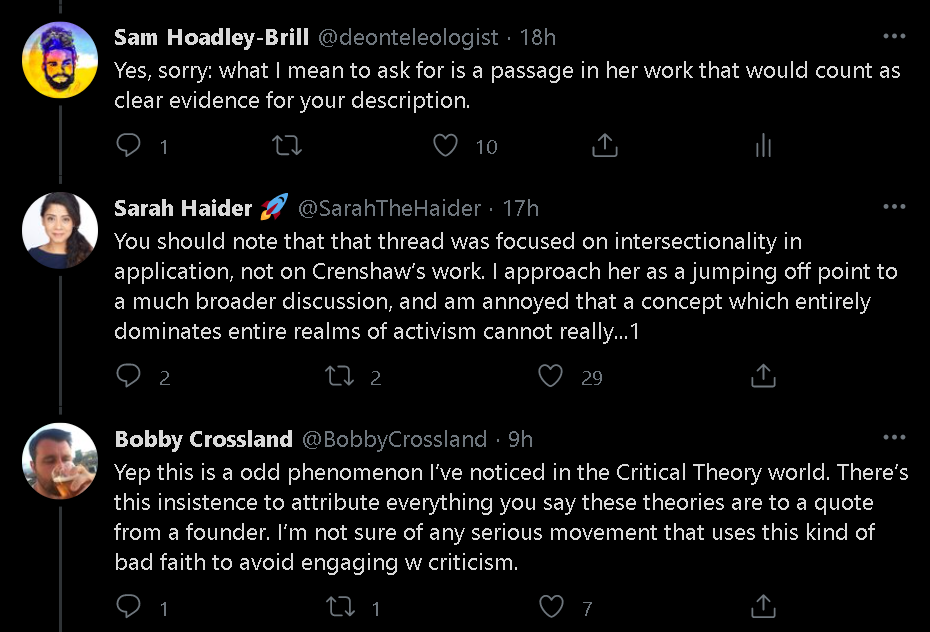
https://twitter.com/JeremyPhilosoph/status/1362273562820816899?s=20Well, thank God! Jeremy is here to save the day. He thinks he can vindicate Sarah's claims, and we can even go back to the actual definition of intersectionality! Alrighty, let's see what we've got... 6/
You can read his thread on "Mapping the Margins" in full here. It's not that exciting. Spoiler alert: no proof of Crenshaw rejecting "universal liberalism." None at all.
https://twitter.com/JeremyPhilosoph/status/1216522264247664640?s=207/
Here's the closest Crenshaw comes to anything like a rejection of universal liberalism. She rejects a trend in mainstream liberal discourse: uncritical opposition to identity politics. 8/ 
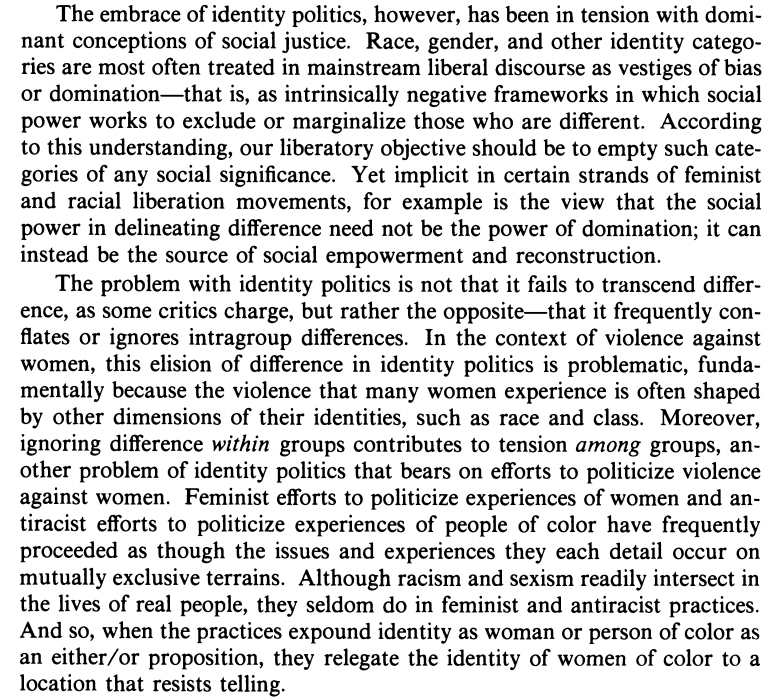
I'm pretty sure Jeremy missed these sentences where Crenshaw clarifies she isn't claiming to give a robust causal explanation of the phenomena she is covering. The point of the paper is to introduce the theoretical framework that had not been articulated. Not a big deal. 9/ 

Here's something Jeremy might focus on; it's a passage Lindsay catastrophizes about in nearly every interview I've seen: the distinction b/w 'I am Black' and 'I am a person who happens to be Black.'
James cries, "Crenshaw mandates the former over the latter!" But... 10/
James cries, "Crenshaw mandates the former over the latter!" But... 10/
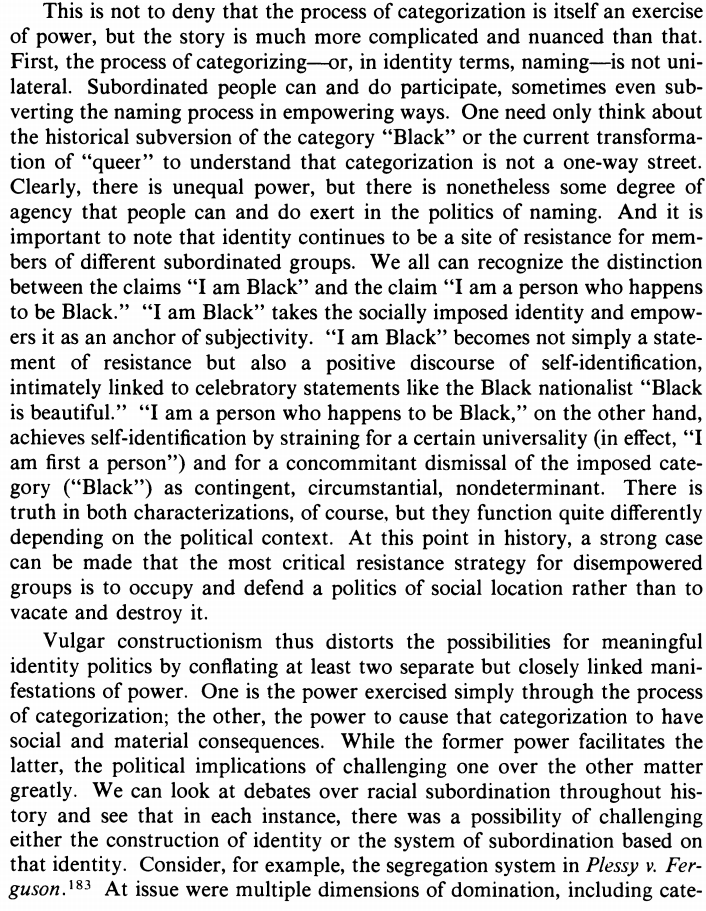
Look again. She explicitly claims that there is truth and utility in both of these statements, and which one an individual or community ought to employ depends on the historical and political context.
James Lindsay's never mentioned that part, of course. 11/
James Lindsay's never mentioned that part, of course. 11/
Lindsay & others like @wokal_distance are CONSTANTLY making a meal out of Crenshaw saying "I consider intersectionality a provisional concept linking contemporary politics with postmodern theory."
They never reveal that all she means by "postmodern" is antiessentialist. [fin]
They never reveal that all she means by "postmodern" is antiessentialist. [fin]
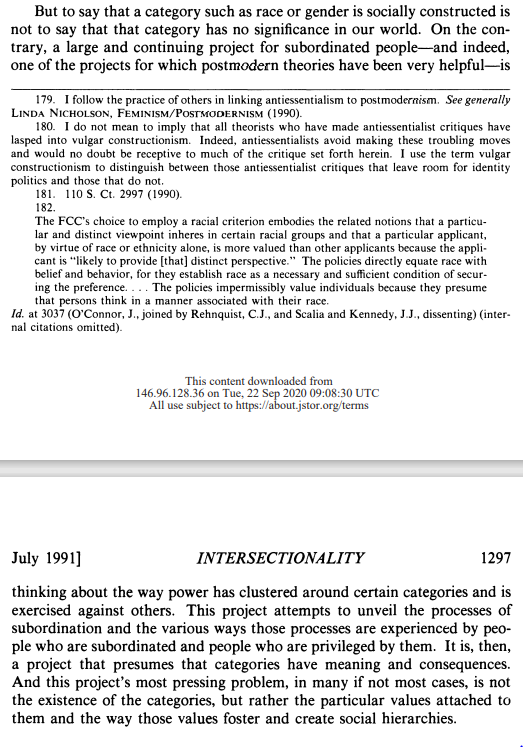
• • •
Missing some Tweet in this thread? You can try to
force a refresh





